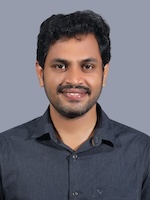The Department of Computer Science and Engineering was established in the year 2002 with an undergraduate program.
The department has been continuously extending its developmental activities to offer high standards of quality in teaching. The Computer Association, known as ACE (Association of Cyber Experts.), of the department provides a high level of interaction between students and faculties. The Association is releasing a magazine ‘Smart Talk’ one per semester which concentrates on the latest development in the computer world. The association conducts various seminars, workshops, paper presentations and guest talks.
The Computer Science and Engineering is a study of the theoretical foundations of Information, Computation and of Practical techniques for their implementation and application in Computer Systems. Now a days this concept is applicable in the areas like Automobile, Banking, Defense, Healthcare and Telecommunication etc. This will lead to lot of scopes and challenges for Computer Engineers. The Department is functioning in a separate building and it is self sustained with the state of the art computer laboratories, software and volumes of books. Apart from giving through technical knowledge using the state of art technology, the students are taught communication skills and are given experience in working in groups on live projects. It has well-equipped laboratories with modern computing facilities. There are more than 400 computer systems available in our different laboratories, installed with different types of Operating Systems like Linux, Unix, and Windows.
VISION
To nurture the Computer Science and Engineering students to be professionals with innovative skills and research ability to address the emerging challenges for the development of society.
MISSION
- To offer every student, a globally competent and value driven learning environment.
- To empower students with cutting-edge technologies and enhance their expertise to adapt to the fast-changing world.
- To provide a learning environment that fosters problem-solving skills, leadership qualities, and teamwork, nurturing students to become innovators and researchers.
- To inculcate social responsibilities and professional ethics among students, cultivating a sense of integrity and accountability.
PROGRAM EDUCATIONAL OBJECTIVES (PEOs)
Graduates will be able to
- PEO 1: Achieve success in professional career and advanced academic pursuits by the application of acquired knowledge in mathematical, scientific and engineering
fundamentals. - PEO 2: Analyze and develop complex software systems by adapting state-of-the-art technologies to meet societal and business requirements.
- PEO 3: Embrace leadership and entrepreneurial responsibilities within their profession by upholding principles of sustainability and ethics.
- PEO 4: Develop an attitude of lifelong learning to keep abreast with the latest technical advancements in Computer Science and Engineering.
PROGRAM SPECIFIC OUTCOMES (PSOs)
Students will be able to
- PSO1: Apply the principles of Mathematics and fundamental concepts of computing to design and develop secure and reliable software and hardware systems.
- PSO2: Enact standard practices in software engineering to develop and manage quality software products to help solve real life problems.
- PSO3: Explore new ideas and create sustainable solutions by utilizing the power of artificial intelligence, machine learning, and data science.
PROGRAMME OUTCOMES (POs)
- Engineering Knowledge: Apply the knowledge of mathematics, science, engineering fundamentals, and an engineering specialization to the solution of complex engineering problems.
- Problem Analysis: Identify, formulate, research literature, and analyze complex engineering problems reaching substantiated conclusions using first principles of mathematics, natural sciences, and engineering sciences.
- Design/development of Solutions: Design solutions for complex engineering problems and design system components or processes that meet t h e specified needs with appropriate consideration for the public health and safety, and the cultural, societal, and environmental considerations.
- Conduct Investigations of Complex Problems: Use research-based knowledge and research methods including design of experiments, analysis and interpretation of data, and synthesis of the information to provide valid conclusions.
- Modern Tool usage: Create, select, and apply appropriate techniques, resources, and modern engineering and IT tools including prediction and modelling to complex engineering activities with an understanding of the limitations.
- The Engineer and Society: Apply reasoning informed by the contextual knowledge to assess societal, health, safety, legal and cultural issues and the consequent responsibilities relevant to the professional engineering practice.
- Environment and Sustainability: Understand the impact of the professional engineering solutions in societal and environmental contexts, and demonstrate the knowledge of, and need for sustainable development.
- Ethics: Apply ethical principles and commit to professional ethics and responsibilities and norms of the engineering practice.
- Individual and Team Work: Function effectively as an individual, and as a member or leader in diverse teams, and in multidisciplinary settings.
- Communication: Communicate effectively on complex engineering activities with the engineering community and with society at large, such as, being able to comprehend and write effective reports and design documentation, make effective presentations, and give and receive clear instructions.
- Project Management and Finance: Demonstrate knowledge and understanding of the engineering and management principles and apply these to one’s own work, as a member and leader in a team, to manage projects and in multidisciplinary environments.
- Life-long Learning: Recognize the need for, and have the preparation and ability to engage in independent and life-long learning in the broadest context of technological change.



